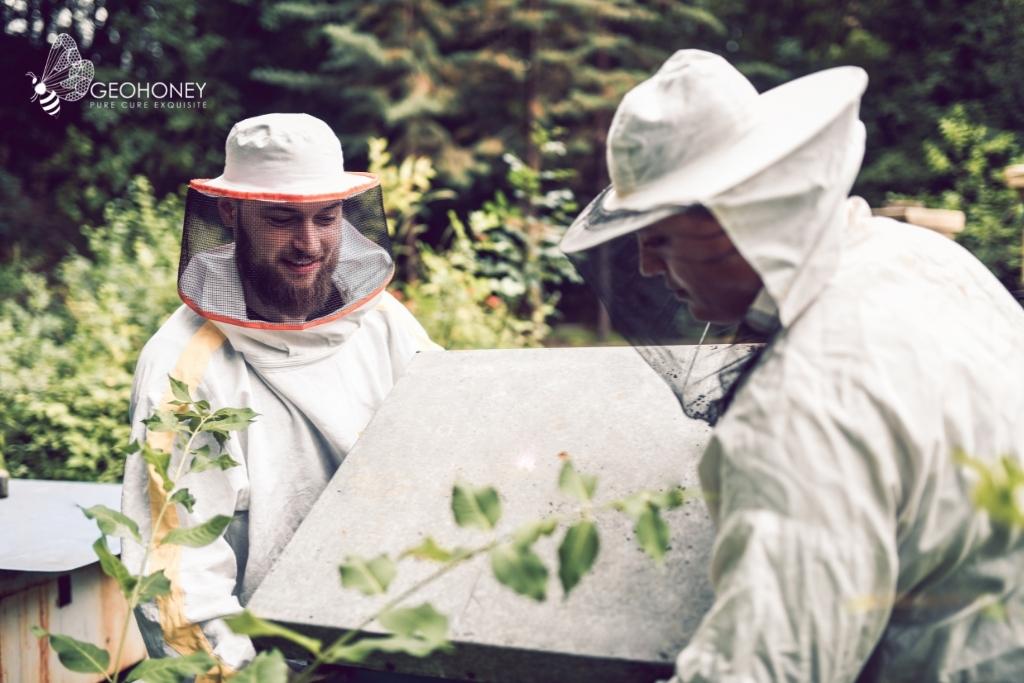- Tokyo: 00:34
- Singapore: 23:34
- Dubai: 19:34
- London: 15:34
- New York: 10:34
Importance of Green Technology in Honey Production

Natural products have been helpful for human health since ancient times. Resources from nature have been used as herbal medicine throughout human history. The use of natural products is growing worldwide, with people inclining towards healthy & organic living.
Organic honey, the most popular food item, is used by people in various dishes. This natural product is a gift from bees; much of our ecosystem depends on such pollinators. A large portion of our global food supply relies on the hard work of these bees, whose existence is in decline.
From habitat destruction and urbanization to environmental change and the utilization of pesticides, the presence of much-required honey bees is in danger. But green technology is offering new solutions to help beekeepers in beekeeping, reducing bee losses & increasing honey production.
Beekeeping is a kind of farming encountering significant troubles related to a critical decrease in the production of natural bee products. Sustainable technologies in modern beekeeping are now urgent to maintain food security. Today, over two billion people lack access to nutritious food in adequate amounts. The impact of malnutrition - a condition including obesity and deprivation resulting from consuming a diet that does not supply a healthy amount of one or more nutrients.
Every year, up to 14% of food is wasted before it arrives at the wholesale market, increasing further during retail and consumption. At the same time, agricultural difficulties exist. This all indirectly depends on pollinators & beekeeping. A project on climate-smart beekeeping demonstrated that beekeepers are now using effective and eco-friendly technological solutions to meet their business challenges.
So, what leading green technologies are used in beekeeping today? The leading green technologies that assist with producing the best honey in a sustainable way are biotechnology, renewable energy, zero tillage, integrated pest management, and digital sensors.
What is Green Technology?
Green technology attempts to diminish the adverse impacts of humans on the environment & planet. When carried out accurately, these technologies support the human populace on the planet and give future generations a healthier planet. Green technology is fundamental for beekeeping since they decrease ecological harm and aid in sustainable honey production. These are the prime reasons for calling them clean technology.
How to Use Sustainable Practices in Beekeeping?
Harvesting honey can be transformed into a sustainable business with few resources: with the correct information, abilities, and tools, bee hives can commonly be produced using local resources. Furthermore, the hives just occupy little room; honey bees needn't bother with being taken care of as they gather nectar and pollen from the encompassing regions. Simultaneously, there is a rising awareness that beekeeping should revolve around the requirements of the honey bees, utilizing native honey bees and techniques appropriate for each location and without the use of nasty pesticides to attain genuinely sustainable practices.
Fundamentally, sustainable beekeeping endeavors can play a significant part in achieving sustainable development as they offer life opportunities and generate income while contributing towards food security and biodiversity protection. However, they face some significant challenges that we require to help them overcome.
Experience has demonstrated that competition with other 'regular' businesses can present serious difficulties, as those can frequently offer honey at lower costs. However, their items will generally be of lower quality as the honey is boiled, thus annihilating supplements or weakened with sugar water. Establishing a certification body that officially acknowledges the positive social and ecological effects of sustainably produced honey could offer a practical solution to allow social and ecological start-ups to distinguish themselves from conventional competitors.
Simultaneously, sustainable beekeepers are over and over confronted with an absence of awareness from local customers about eco-friendly items and the dietary benefit of excellent honey. While the awareness-raising effort would resolve this issue, those tend to be very expensive and time-consuming. A solution to increase sustainable honey production and consumption is to partner with local NGOs, media, or government agencies. Their broad organizations can assist with pushing the ecological and social benefits of sustainably produced honey to the more extensive public.
Geohoney, the leading Greentech & Pollination Company, always uses sustainable ways & monofloral agri-technology to reduce carbon footprints, thereby stepping forward to achieve a balanced and sustainable environment. Our entire work is done by ensuring natural sustainability through ecological preservation and regeneration, security and re-development of endangered plant species, and advancing biodiversity.
The role of honey bees in the biological system is enormous and indispensable. But sadly, due to the degradation of nature and the exhaustion of natural resources, bees are in serious danger. That is why significant safety measures should be taken about the factors that worsen the life of bees leading to the loss of nature.
It is vital to attempt to adopt sustainable & green technologies which straightforwardly help in the existence of bees and are of such importance in the ecosystem and for our food security.




Technology is necessary for the betterment of human life but such technologies should not negatively affect the nature and environment.